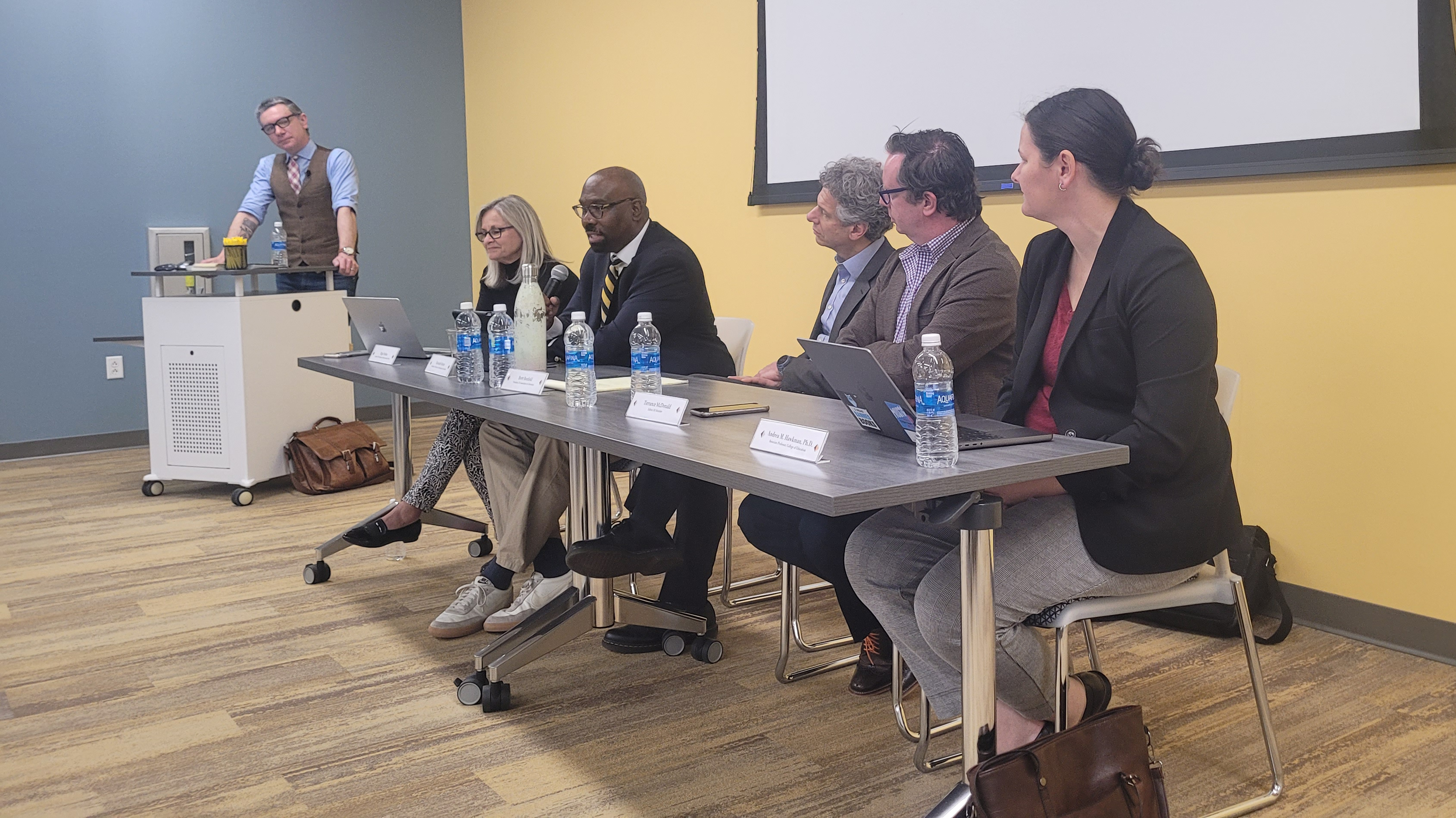
The Department of Journalism and the New Jersey Society of Professional Journalist put together a panel called “News Media Literacy in an Age of Disinformation” on April 18 in the Welcome Center on Rowan Boulevard.
The panel began at 4 p.m. with an introduction from panel moderator and Rowan University journalism professor Nicolas DiUlio. DiUlio and professor Emil Steiner started the process of creating the university’s news media literacy course several years ago, with the first classes held in the fall semester of 2022.
“I have seen so many students’ light bulbs going off and starting to understand concepts they had never learned before,” said DiUlio during the panel introduction.
The panel comes less than four months after legislation passed in New Jersey requiring media literacy classes in K-12 education. New Jersey is the first state in the country to mandate education on media literacy.
The panel consisted of five educators and journalists, including Olga Polites, the leader of the NJ Chapter of Media Literacy Now.
The first question of the night was about why media illiteracy posed such a problem in society. Answers included lack of standards, using the term “breaking news” as a marketing technique, decentralization of news meaning less guardrails are in place against the dissemination of false information and the importance of teaching media literacy in the digital age.
“We are in the 21st century and a lot of schools are still in the 20th,” said Polites, referring to the lack of media literacy training at other institutions.
Kenneth Burns, the president of the New Jersey Society of Professional Journalists, spoke about how the idea of objectivity in the newsroom has historically held a bias toward the perspective of the powerful, hindering deep and complex coverage of all news, but particularly that of marginalized communities.
On the subject of the K-12 education requirements, the panel was asked what they would like to see in the curriculum. Some suggestions included reading and discussing the news, practical experience in school newspapers, the difference of intent and impact and an acknowledgement of personal biases.
“Neutrality is not reality,” said Andrea M. Hawkman, PhD, and associate professor of education at Rowan University. She then began discussing the importance of acknowledging that everyone has a personal bias, especially on particularly emotionally charged and polarizing issues.
DiUlio prompted the panel with a question about the Biden administration’s proposed Disinformation Governance Board, and asked if there was any way to legislate the problems with media illiteracy away.
Brett Bonfield, the president of the New Jersey Association of Librarians, pointed out that many people do not trust the government or the media, so having either of those entities trying to dictate what is true and what is not would do little to help the problems in society. The idea of administration change leading to a change in what was considered factual was also discussed by the panel. Hawkman said that community should be built from the ground up rather than from bureaucratic institutions down.
DiUlio’s final question was about how the panelists individually navigate media landscape. The panelists said that they think critically about sources, limit engagement with media and ensure that they are not engaging with information that will not help them be productive or will harm their mental health.
At the end, the panel opened up to audience questions. Sylent Michaels, an attendee, asked how to spread K-12 media literacy education legislation to more of the country. Hawkman and Polites stressed that there was already work being done and a focus needed to be put on getting resources that already exist to teachers.
Gianna Malgieri, another attendee, asked how students can teach older people and other students about media literacy. Hawkman and Bonfield said that focusing on smaller issues and meeting people at the level they were at were the most important parts of teaching people media literacy and changing minds.
“The main point that I hope people will take away from this panel is that knowing how media works is important, and that there’s much more improvement that needs to happen as far as the honesty, the recognizing self-bias and the covering of all sides. My viewpoint might be different from your viewpoint. Your religious beliefs might be different from my religious beliefs. We need to be honest about this, as opposed to allowing other forces to basically put everybody in a silo to the point that what we have now is people just want to hear what they like to hear,” Burns said.
For comments/questions about this story tweet @TheWhitOnline or email thewhit.newseditor@gmail.com





